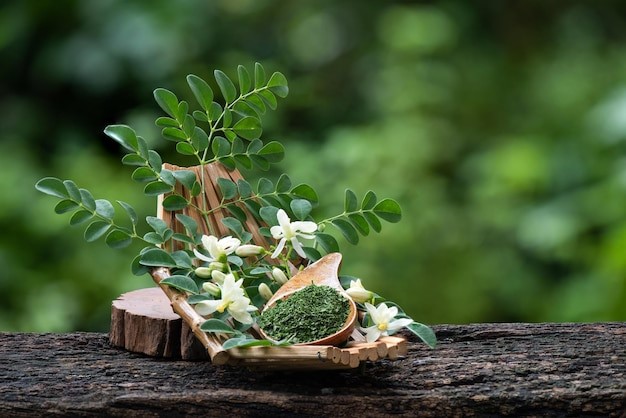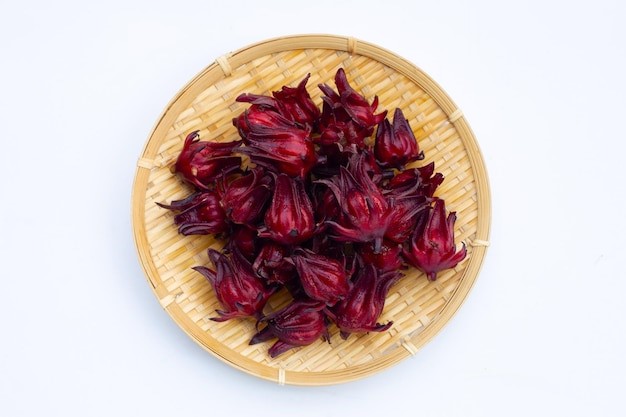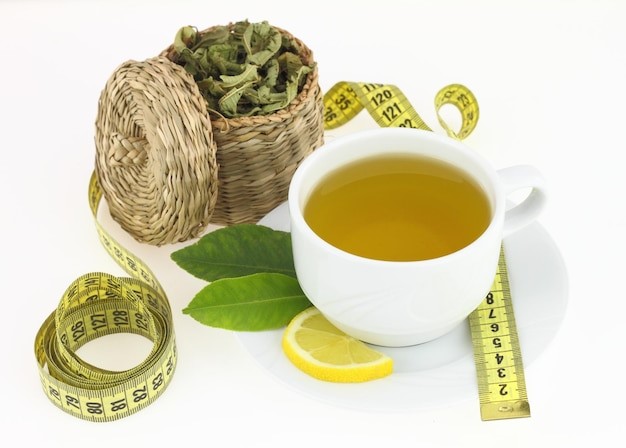The hustle and bustle of life can sometimes make weight management feel like scaling Mount Kilimanjaro. But don’t you worry, Nigeria, a country renowned for its vibrant culture, cuisine, and… herbs, has answers for you!
That’s right! Its opulent landscape offers a treasure trove of powerful herbs that, when paired with a healthy lifestyle, can support weight loss efforts.
In this week’s edition of health and fitness, we will be examining some of the powerful herbs in Nigeria that can help with weight loss. Hopefully, with a healthy lifestyle, you can easily lose enough weight to improve your overall wellbeing.
Moringa (Moringa oleifera)

First off, let’s talk about Moringa. Known as the ‘miracle tree’, it’s not only a delightful addition to meals but also packs a powerful health punch.
The National Institutes of Health also praises its anti-obesity elements, noting in particular the weight loss benefits of its seed oil extract and lycopene.
Rich in vitamins, minerals, and fiber, Moringa leaves help keep you feeling full longer, thereby controlling those pesky cravings. You can add it to your salads, soups, and even squeeze it into a refreshing tea.
Bitter leaf (Vernonia amygdalina)
Next, is bitter leaf. Now, don’t let the name discourage you – bitter can be better! This potent plant is known for its antidiabetic properties and is believed to enhance insulin  sensitivity, helping to control weight gain associated with blood sugar imbalance. In addition to making its way into many Nigerian dishes, bitter leaf can also be brewed into a tea.
sensitivity, helping to control weight gain associated with blood sugar imbalance. In addition to making its way into many Nigerian dishes, bitter leaf can also be brewed into a tea.
Hibiscus (Hibiscus sabdariffa)
 Hibiscus, locally known as “Zobo”. It’s like the life of the party in the world of herbs, famous for its vibrant color and tangy flavor. It’s often used in Nigeria to make a refreshing, ruby-red drink. But the party doesn’t stop there. According to online platform, WebMD, hibiscus has diuretic properties that help you maintain a healthy blood pressure, and of course lose water weight. It may also help in maintaining a healthy lipid profile.
Hibiscus, locally known as “Zobo”. It’s like the life of the party in the world of herbs, famous for its vibrant color and tangy flavor. It’s often used in Nigeria to make a refreshing, ruby-red drink. But the party doesn’t stop there. According to online platform, WebMD, hibiscus has diuretic properties that help you maintain a healthy blood pressure, and of course lose water weight. It may also help in maintaining a healthy lipid profile.
African bush mango (Irvingia gabonensis)

Now, let’s not forget about African bush mango, also known as Ogbono. The seeds from this fruit are widely used in Nigerian cuisine, especially in soups. Research suggests that extract from the seed may help lower body weight, body fat, and waist circumference. This might have to do with its high fiber content, which could potentially suppress appetite and improve metabolic parameters.
Ginger (Zingiber officinale)

Finally, ginger deserves a mention. A common spice in Nigerian and indeed, global cuisine, ginger offers a spicy kick that can boost metabolism and create a thermogenic effect, potentially aiding in weight loss according to online health magazine Healthline. Plus, a warm cup of ginger tea just feels like a cozy, wellness-infused hug, doesn’t it?
Bottom line
Remember, while these herbs can be a great ally in your weight management journey, they’re not magic wands (even if we wish they were). Healthy, sustainable weight loss is a holistic process that includes a balanced diet, regular exercise, good sleep, and mental well-being.
Again, Healthline adds that when used as a seasoning for foods, the aforementioned herbs and spices can provide a burst of health benefits with minimal risk of side effects.
Just don’t go overboard. Stick to no more than one tablespoon (14 grams) per day and be sure to pair them with nutrient-rich whole foods to help boost weight loss even more.
If you take herbs in supplement form, it’s important to stick to the recommended dosage on the package to prevent adverse effects.
Additionally, if you have any underlying health conditions or are taking medications, it’s best to talk to your doctor before starting any supplement.
If you experience any negative side effects or food allergy symptoms, discontinue use immediately and talk to a trusted healthcare practitioner.
So, buckle down, and embark on this journey with patience and perseverance


